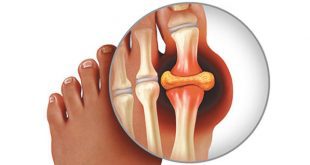

Psychotherapy, commonly referred to simply s therapy, helps people understand the behaviors, emotions, and ideas that contribute to his or her illness and learning how to modify them. Talking with a therapist can also help identify the life problems or events – like a major illness, a death in the family, a loss of a job, or a divorce – that contribute to their illness and help them understand which aspects of those problems they may be able to solve or improve. By taking advantage of the services therapy provides, individuals are able to regain a sense of control and pleasure in life and learn coping techniques and problem-solving skills.
Approaches to Therapy
While therapy can be done in different formats — like family, group, and individual — there are also several different approaches that mental health professionals can take to provide therapy. After talking with the patient about their disorder, the therapist will decide which approach to use based on the suspected underlying factors contributing to the condition.
Psychodynamic Therapy
Psychodynamic therapy is based on the assumption that a person is having emotional problems because of unresolved, generally unconscious conflicts, often stemming from childhood. The goal of this type of therapy is for the patient to understand and cope better with these feelings by talking about the experiences. Psychodynamic therapy is administered over a period of at least several months, although it can last longer, even years.
Interpersonal Therapy
Interpersonal therapy focuses on the behaviors and interactions a patient has with family and friends. The primary goal of this therapy is to improve communication skills and increase self-esteem during a short period of time. It usually lasts three to four months and works well for depression caused by mourning, relationship conflicts, major life events, and social isolation.
Cognitive-Behavioral Therapy
Cognitive-behavioral therapy helps people with mental illness to identify and change inaccurate perceptions that they may have of themselves and the world around them. The therapist helps the patient establish new ways of thinking by directing attention to both the “wrong” and “right” assumptions they make about themselves and others.
Tips for Getting the Most from Therapy
Therapy works best when you attend all scheduled appointments. The effectiveness of therapy depends on your active participation. It requires time, effort, and regularity.
As you begin therapy, establish some goals with your therapist. Then spend time periodically reviewing your progress with your therapist. If you don’t like the therapist’s approach or if you don’t think the therapist is helping you, talk to him or her about it and seek a second opinion if both agree, but don’t discontinue therapy abruptly.
Remember, therapy involves evaluating your thoughts and behaviors, identifying stresses that contribute to your condition, and working to modify both. People who actively participate in therapy recover more quickly and have fewer relapses.
Also, keep in mind, therapy is treatment that addresses specific causes of mental illness; it is not a “quick fix.” It takes longer to begin to work than medication, but there is evidence to suggest that its effects last longer. Medication may be needed immediately in cases of severe mental illness, but the combination of therapy and medicine is very effective.
Brenda Gonzalez, LCSW, MT
Licensed Clinical Social Worker
(Psychotherapist)
2525 Harbor Blvd, Suite 301
Port Charlotte , Fl 33952
941-613-1356
 Southwest Florida's Health and Wellness Magazine Health and Wellness Articles
Southwest Florida's Health and Wellness Magazine Health and Wellness Articles

